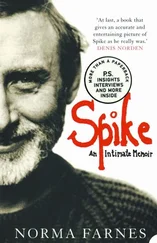She absolutely adored horses, and during this time, Bit of Irish was her favorite. She would walk up to the horse, which had already been groomed and saddled, raise her hands up behind its ears, and look straight into its eyes while gently caressing the animal’s long neck. She would speak to him in her soft, soothing voice and suddenly the horse would respond with a nod of his head or a nuzzle into her neck with his wet nose. She’d laugh—oh what an infectious laugh she had—and as I watched from a distance, I could see the sheer joy the animal gave her. At times it appeared as if she and her large, maned friend were having an actual conversation. She was perfectly at ease around horses, and just being in their presence gave her great pleasure.
On one of our many trips to the Fout residence—it was just the two of us driving along one of the hilly Middleburg two-lane roads—Mrs. Kennedy turned to me and asked, “Mr. Hill, have you traveled much?”
“Well, when I was assigned to President Eisenhower, I had the opportunity to travel a great deal.”
“Where did you go?”
“Oh, we went throughout Europe, Asia, the South Pacific, South America . . .” I looked over to see her reaction. I thought she might be impressed, but there was no sign that she was.
“Have you been to Paris?” she asked.
“Twice,” I replied.
She raised her eyebrows and asked, “Parlez-vous français, Monsieur Hill?”
I wasn’t exactly sure what she said, but it was clearly French, so I took a guess and responded with my version of a French accent.
“No, Madame Kennedy, I do not speak French. But I do know where to find the best French onion soup you have ever had in your entire life.”
She laughed and said, “The president is going on some foreign trips, and I’m planning to go with him on some of them. Paris and Vienna will be among the first.” I hadn’t heard about this yet, so I was glad to receive the information.
“I presume,” she continued, “that if I go with the president, the Secret Service would send someone on my behalf, right?” she asked.
“Yes, that’s right. Either Agent Jeffries or I would go along with one of the president’s agents on the advance, to set up the trip.”
“What do you do on an advance? I mean are there certain things I won’t be allowed to do?” This was typical of Mrs. Kennedy’s curiosity. She wanted to know what kinds of things would be arranged for her, so she could know what to expect.
“You can pretty much do whatever you want to do, and it’s our job to make sure you can do that safely,” I said. “Of course it’s much more difficult when we travel internationally because we have to work with the foreign police organizations and security forces. Everything will be planned out to the minute so that hopefully there aren’t any surprises along the way. Everywhere you go it will be determined who is joining you, where you sit, what you eat, how you get from one place to another. We want you to be able to enjoy the trip, and feel safe everywhere you go.”
As I was talking, her face took on a rather pained expression.
“Oh, it sounds so clinical,” she said with dismay. “When I was in Paris in college, I was carefree. I could stay out until three in the morning and sleep till noon; I could sit at a café along the Rive Gauche without worrying about a gaggle of photographers sneaking up to snap a photo. I suppose those days are long gone.”
The wistfulness in her voice made me realize how difficult the constant attention was for Mrs. Kennedy, and I could understand completely. I saw the throngs of people that gathered around gawking and snapping photos. It was constant. I made a resolve that I would do everything I could to help her be as carefree as possible, to live as “normal” a life as she could. The best way to do this would be to keep our comings and goings as secret as possible. It wouldn’t be easy, but if I could wipe that sad look off her face, it would be worth it.
By this time we had arrived at the Fout residence. I had no way of knowing whether or not I’d be assigned to the foreign trips Mrs. Kennedy had discussed, but the mere mention of Paris brought back wonderful memories, and I sure hoped I would get to go.
THE FIRST WEEKEND of April 1961 was Easter, and it was back to Palm Beach. When we returned to Washington, it seemed that spring was finally arriving after what had been one of the snowiest winters in the capital’s history.
One morning, I was in the Secret Service office when Mrs. Kennedy called on the telephone from upstairs.
“This is Clint,” I said as I picked up the phone.
“Mr. Hill?” she asked. “Do you play tennis?”
“No, Mrs. Kennedy,” I replied, “I must say I have never played tennis.”
There was a pause on the other end of the line. Then she said, “It’s such a beautiful day. I was hoping to go out on the tennis court and hit some balls.”
“Well, if you have an extra racket I’d be happy to give it a try,” I answered.
I have to admit I considered tennis to be a very easy sport from a competitive point of view. I always thought it was a game for “sissies”—not very manly. Having played varsity baseball in college with an excellent batting average, I was confident I could hold my own on a tennis court with Mrs. Kennedy. It was indeed a beautiful day outside, and it sounded like fun.
“Oh that would be great, Mr. Hill,” she said enthusiastically. “Please meet me at the South Portico.”
A few minutes later, Mrs. Kennedy came striding out of the door to the South Portico with a big smile on her face, holding two rackets in one hand and a can of tennis balls in the other. She was dressed in a pair of lightweight slacks, a short-sleeved top, and white tennis shoes.
When she saw me, she laughed. “Oh, Mr. Hill! You can’t play tennis in your suit!”
I had no way of knowing tennis would be on the agenda when I dressed for work in the morning, so I was wearing my usual Washington uniform of a dark suit, white shirt, tie, and Florsheim shoes.
“It’s no problem, Mrs. Kennedy. I’ll be fine. Let’s go.”
“Okay,” she said as she handed me a racket. Grinning, she added, “Let’s hope there aren’t any photographers around.”
We walked to the tennis court and I watched as she walked to the back line of one side. I removed my suit coat and gun and placed them on the side of the court. I had no idea what all the lines meant on the court, so I just walked to the other side and stood in the middle of the white line at the back.
“Ready?” she called out.
“Ready!” I answered.
I grabbed the racket in both hands like a baseball bat and held it up as if I were awaiting a pitch. She seemed to be suppressing a smile as she served up the ball and hit it across the net.
I watched, and eager to make a good impression, as the ball came toward me I swung the racket back and whacked it with all my might.
The ball went flying over Mrs. Kennedy’s head, over the fence, and into the trees behind the court.
Mrs. Kennedy watched the ball throughout its flight, saw it hit the ground, and turned back toward me. She didn’t say a word. Holding the racket in one hand, she just pulled out another ball and tried again. This time, I didn’t wind up nearly as much and hit the ball as if I were aiming for second base instead of trying to hit a home run.
The same thing happened. The ball went flying over the fence.
“Mr. Hill,” she called from the other side of the net. “The object is to hit the ball to me so I can return it.”
“Yes, Mrs. Kennedy,” I said as I wiped my brow. There was very little breeze and I was already starting to sweat in my wool suit.
I got a bit better and managed to hit a few balls over the net to her, but it certainly wasn’t the game that she had anticipated. I ended up spending most of the time retrieving the balls I’d hit over the fence so we could continue.
Читать дальше











